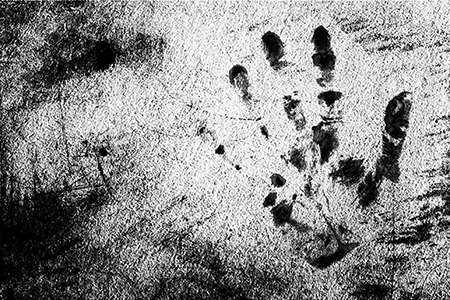Pistorius trial guilty of bad science

One of my guilty secrets is a fascination with the live coverage of high profile criminal trials.
This all started with OJ Simpson a few years ago. Remember the 'bloody glove'? Then there was the Michael Jackson trial, actually the trial of Conrad Murray for the manslaughter of Michael Jackson.
Now we have Oscar Pistorius. There is clearly lots to be horrified by in this trial, but apart from the obvious, I've been astonished by the bad science.
Compare and contrast
Recall the scientific evidence in the 2012 MJ trial? Michael Jackson was killed by propofol, a reliable anaesthetic "induction" agent used frequently in veterinary (and human) medicine. It became a household name at this time. It is rare to see serious pharmacology/neuroscience on the TV so I was gripped, and they got it all right. They discussed dose rates, pharmacokinetics, metabolism all with graphs, confidence intervals and equations.
Compare and contrast the neuroscience in the OP trial.
Could the 26-year-old Pistorius have seen Reeva walking through his bedroom in the night time darkness? Expert witness Roger Dixon tested this by turning the lights on and off. The light measuring instruments? "My Lady, the instruments I used there, were my eyes" "we wanted to see what the eyes could see". Whilst some people thought that a perfectly reasonable comment, in fact the eyes are incredibly variable.
There is a general deterioration of the senses throughout aging and poor vision becomes exaggerated in low light situations. Oscar Pistorius at the time of this shooting was 26, whereas Roger Dixon must be at least twice this age.
Furthermore, it takes about an hour for eyes to fully adjust to the dark. Images totally invisible when you switch the lights off will be visible after an hour or so of shut eye. Beyond these very well understood visual phenomena are the more sophisticated visual limitations.
The visual cortex of animals (including humans) is adapted, essentially, to see what the animal needs to see and to positively exclude unnecessary information. There is a story that animals kept at a zoo with horizontal bars were suddenly switched to cages with vertical bars and henceforth perpetually walked right into these bars. It appeared that they had developed an inability to even see vertical bars.
This apparently incredible fact has now been exhaustively repeated with controlled experiments. For really striking human examples search YouTube for "inattention blindness".
Of course, the fallibility of the visual sense is just the tip of the iceberg. The nose and mouth are equally untrustworthy. These are both chemical senses, but some tastes and most smells desensitise really quickly. So for example, you'll notice other peoples' odours, but rarely your own, unless of sudden onset and transient, but quickly moving on…
Any taste is composed of many taste components and they all desensitise at different rates, so your first sip of wine will generally not taste like the subsequent ones. It was even recently shown that people report food to taste less sweet from a black plate as the sense of taste is so easily fooled.
The fallacy of trying to draw objective conclusions from our senses runs far wider than court cases and anecdote.
It is a fundamental problem with medical research. People cannot accurately judge their own health or pain state. So your neighbour adamantly telling you how much more mobile both he and his dog have become since eating masses of (expensive) glucosamine is not terribly useful information.
Real evidence
I am confident that all academics at the University of Liverpool go to inordinate lengths to devise objective measurements of everything from pain scores and visual acuity tests to animal behaviour assessment, but my fear is that in the wider world, too many people think that there is no more reliable indicator than that which you can detect with your own senses. I've even seen this starting to creep into medical sciences.
So whatever the official verdict in the trial of Oscar Pistorius, I'm hoping they will stick to real evidence and not subjective measurements such as light levels determined with the naked eye and I hope that people in general can be persuaded to trust objective science more, and their senses less.
If that makes sense.
















